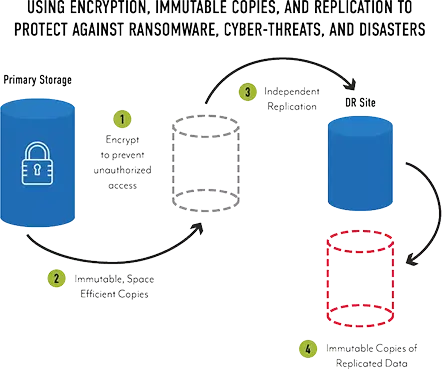StorONE Virtual Storage Container™
Unleash Performance, Efficiency, and Reliability with StorONE

What Is a Virtual Storage Container?
The Virtual Storage Container™ is a concept that isolates the logical storage functionality from the physical hardware environment, and offers the capability to simplify the various storage services and requirements within the data center by leveraging various media types and by media pooling.
The SDS nature of StorONE software enables the greatest versatility and flexibility.
The Virtual Storage Container™ leverages a wide array of hardware from various vendors or even cloud platforms utilizing the same StorONE software. Hardware abstraction allows you to create a use case-specific capability utilizing the right media pools (flash/HDD or combo) for your application requirements.
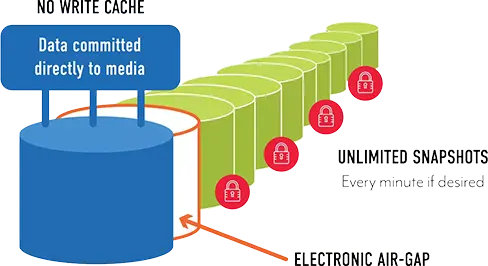
Why Is A Virtual Storage Container Beneficial?
Our software and hardware abstraction layer, Virtual Storage Container, and media pooling allow for normally resource-competitive workloads to co-exist within the same platform, easing administrative overhead and burden; while simplifying the deployment, support, and cost of the various data services required for an environment.
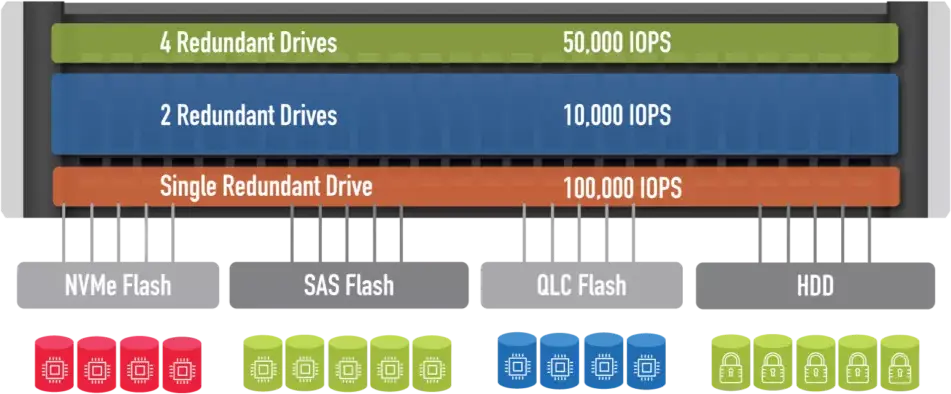
Virtual Storage Containers Deliver Use-Case Specific QoS
Adaptability for Capacity
Scalable Capacity, Efficient Drive Utilization, and Dynamic Allocation.
We allow for the ability to add and mix additional storage media, expand existing storage pools, or integrate new storage media into our existing systems. This ensures ample capacity and capability for our current and future data storage requirements.
We optimize space utilization through adaptive capacity management via thin provisioning to eliminate wasted space and maximize storage efficiency. Dynamic storage allocation enables us to allocate resources on-demand and adjust capacity allocations as needed, ensuring effective utilization of storage resources tailored to specific application requirements.
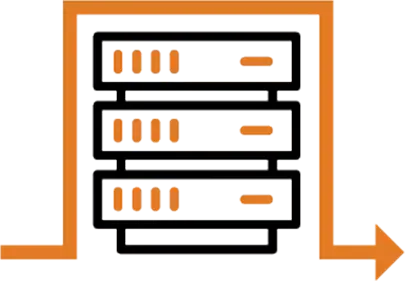
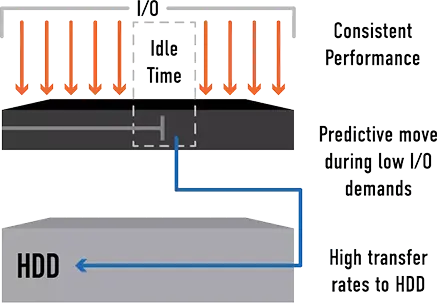
Protocols
Comprehensive Protocol Support.
Our storage solutions offer native support for a wide range of storage protocols simultaneously, if needed, including block-based (iSCSI, Fibre Channel, Infiniband, NVMe-oF(RDMA, TCP)) and file-based (NFS(v3, 4.2), SMB (v2, v3, v3.1)) and Object (S3 compatible) protocols. This comprehensive protocol support enables seamless integration into existing IT infrastructures.
We provide a single management interface, simplifying management and reducing complexity. We can efficiently manage and access block, file, and object data from a single interface. Our protocol support easily extends to emerging storage protocols and technologies, ensuring future-proof connectivity. This allows us to stay compatible with evolving IT environments and leverage the latest advancements in storage connectivity.
Data Protection
Data Protection, Ransomware Defense, and Scalable Backup.
We deliver robust data protection through features like immutable snapshots, advanced replication capabilities, and Snapshot Locking. Complemented with MFA, Multi-Admin Authorization, Audit logging, and various Encryption capabilities, these safeguards ensure our data integrity, availability, and security, protecting against hardware failures, data corruption, malicious attacks, and unauthorized access.
Our dedicated measures against ransomware or malware include immutability, anomaly detection, instant recovery, swiftly mitigating threats and minimizing business impact. We optimize backups, reduce storage requirements, backup windows, and strengthen data protection.
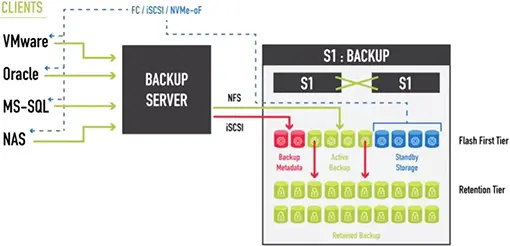
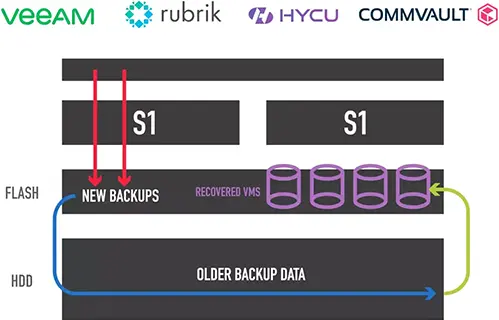
Scalability / Flexibility
Versatile Scalability, Multi-Protocol Support, and Flexible, use-case-specific Resource Allocation.
Our Versatile Scalability allows us to grow our storage footprint not only by adding additional capacity but also by incorporating different media types and capacities for new use-cases. These use-cases could also encompass new protocols or Data Services interfaces.
With our flexible licensing models and the ability to add new hardware without disruption, we enable cost-effective scaling of our storage infrastructure. We support multiple storage protocols, including block, file, and object-based storage, within a single platform. This allows us to meet diverse storage requirements and seamlessly integrate with existing server and networking infrastructures.
Through Flexible resource allocation in our software-defined storage architecture, we empower IT administrators to allocate resources based on workload, performance, and overall data value requirements, ultimately optimizing efficiency.
Data Resiliency
Data Protection, High Availability, and Resilient Storage.
We offer enhanced data protection with advanced redundancy mechanisms, ensuring the integrity and availability of critical data. Features such as vRAID’s advanced performant erasure coding and distributed data configurations provide redundancy at the disk level and potentially at the JBOD shelf level (with enough resources). This safeguards against drive failures or entire JBOD shelf failures, preventing data loss.
Our storage data platform is built for high availability and minimizes the risk of data unavailability or downtime. Redundant hardware components, multi-site replication, and failover capabilities ensure continuous access to data, even in the face of hardware or site failures. We maintain data integrity and resiliency through checksums and scrubbing techniques to identify and repair potential data corruption, ensuring consistent and reliable data storage over time.
